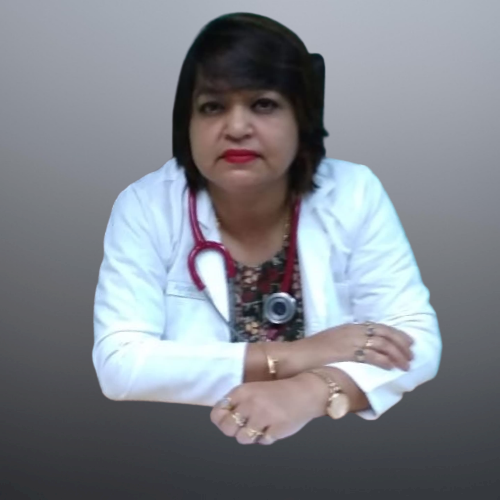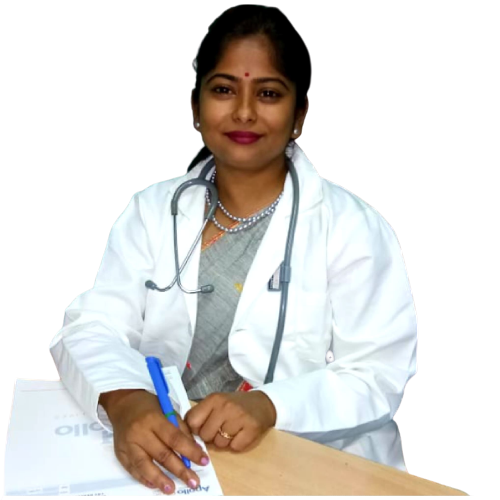Search Result: 5

Dr Biva Goswami
Asst. Prof Obs & Gynaecology, Trained in Laparoscopic surgery
Registration No
4164605
Language
English, অসমিয়া, हिंदी

15 years experience overall

Zoo Road Guwahati , Guwahati
TUE- SAT(02:00 PM-03:00 PM)

Dr Meghali Devi
MD, MBBS
Registration No
1920736
Language
English

10 years experience overall

Guwahati , Guwahati
MON- SAT(11:00 AM-01:00 PM)

Dr Saswati Sanyal Choudhury
MD, FICOG, FIC, MCH
Registration No
2039282
Language
English

15 years experience overall

Guwahati , Guwahati
SAT(03:00 PM-05:00 PM)

Dr Sweta Bhansali
CIMP (Certified India Menopause Practioner)
Registration No
4164541
Language
English, অসমিয়া, हिंदी

15 years experience overall

Zoo Road Guwahati , Guwahati
MON, WED, FRI(04:00 PM-06:00 PM)

Dr Tanma Saikia Das
MD,MBBS,O&G
Registration No
1924202
Language
English

10 years experience overall

Guwahati , Guwahati
MON | TUE | WED | THU | FRI, SAT(02:00 PM-06:00 PM | 02:00 PM-02:45 PM, 04:00 PM-06:00 PM | 02:00 PM-02:30 PM, 04:00 PM-06:00 PM | 02:00 PM-02:15 PM, 04:00 PM-06:00 PM | 02:00 PM-06:00 PM)
Frequently Asked Questions for Diagnostic Hysteroscopy in Guwahati
Diagnostic hysteroscopy is not directly used for polycystic ovary syndrome (PCOS). PCOS is a hormonal disorder that affects a woman’s reproductive health. However, diagnostic hysteroscopy may be recommended for women with PCOS if they experience abnormal uterine bleeding or to rule out other underlying conditions.
Hysteroscopy allows doctors to visually examine the inside of the uterus for diagnosis and treatment purposes. It can help identify conditions like fibroids, polyps, scar tissue, and uterine abnormalities. And determine if any further surgeries are required.
Yes, diagnostic hysteroscopy is generally considered safe. Complications are rare but can include infection, bleeding, or injury to the uterus or surrounding structures.
Diagnostic hysteroscopy is a minimally invasive procedure and is generally not considered major surgery. It does not involve any cuts or slits.
Typically, the size of the hysteroscope used in diagnostic hysteroscopy ranges from 2 to 5 millimeters in diameter, while the new hysteroscopes range from 1.2 to 3mm in diameter.
Hysteroscopy refers to both diagnostic and operative procedures performed using a hysteroscope. Diagnostic hysteroscopy is a type of hysteroscopy that is used to examine the uterus for any abnormalities, whereas operative hysteroscopy is a type of hysteroscopy that is used to perform additional surgeries if required.
Generally, women with abnormal uterine bleeding, infertility issues, suspected polyps, fibroids, or other uterine abnormalities are considered eligible for this procedure.
Several hospitals specialise in gynaecological procedures. It’s best to choose a hospital with experienced gynaecologists who have a good track record of performing diagnostic hysteroscopy and providing complete post-procedure care.
The duration of a diagnostic hysteroscopy can vary but typically takes about 15–30 minutes. However, this can take longer if additional procedures or treatments are required.
• The post-care after diagnostic hysteroscopy includes,
• Rest and maintain vaginal hygiene.
• Avoid strenuous activities, sexual intercourse, and tampons.
• Follow your doctor’s detailed instructions on post-procedure care.
• Stick to the follow-up appointments.
Before diagnostic hysteroscopy, your doctor will examine you thoroughly and discuss the process. They’ll ask you to avoid certain medications, fast for a few hours, and provide you with specific instructions based on your condition.
Recovery time after diagnostic hysteroscopy is minimal. You can get back to your routine within 24–48 hours. However, you must follow your doctor’s specific instructions for post-procedure care.
Generally, diagnostic hysteroscopy is a safe and effective procedure with a high success rate in the diagnosis and treatment of uterine abnormalities.
To find the best doctors for diagnostic hysteroscopy, you can ask for references from your primary care physician, friends, or family members. You can research online, read reviews, or contact reputable hospitals and clinics specialising in women’s health.
Gynaecologists or reproductive endocrinologists typically perform diagnostic hysteroscopy. They have the necessary expertise and training to safely and accurately perform the procedure.
Diagnostic hysteroscopy is a method that uses a thin, lighted tube called a hysteroscope inserted through your vagina to examine the inside of the uterus. It helps doctors diagnose and treat abnormal bleeding, polyps, fibroids, and infertility issues.
Doctors who perform diagnostic hysteroscopy are usually gynaecologists, obstetrician-gynaecologist (OB-GYN), or reproductive endocrinologists. They specialise in women’s reproductive health and have the necessary skills to perform this procedure.
Related Procedures in Guwahati
- Doctors for Hysterectomy in Guwahati
- Doctors for Mastectomy in Guwahati
- Doctors for C-section in Guwahati
- Doctors for Medical abortion in Guwahati
- Doctors for Myomectomy in Guwahati
- Doctors for Adhesiolysis in Guwahati
- Doctors for Hysteroscopic Polypectomy in Guwahati
- Doctors for Diagnostic Laproscopy in Guwahati
- Doctors for Fibroid Removal in Guwahati
- Doctors for Laparoscopic Assisted Vaginal Hysterectomy in Guwahati
- Doctors for Removing Uterine Polyps in Guwahati
- Doctors for Total Laparoscopic Hysterectomy in Guwahati
- Doctors for Diagnostic Hysteroscopy in Guwahati
- Doctors for Ovarian Cyst Removal in Guwahati
- Doctors for Hysteroscopic Myomectomy in Guwahati
- Doctors for Tubal Ligation in Guwahati
- Doctors for Breast Surgery in Guwahati
Related Treatments in Guwahati
- Doctors for Ectopic Pregnancy Treatment in Guwahati
- Doctors for Endometriosis Treatment in Guwahati
- Doctors for Hirsutism Treatment in Guwahati
- Doctors for Lichen Planus Treatment in Guwahati
- Doctors for Menopause Treatment in Guwahati
- Doctors for Polycystic Ovary Syndrome Treatment in Guwahati
- Doctors for Sexually Transmitted Diseases Treatment in Guwahati
- Doctors for Urinary Incontinence Treatment in Guwahati
- Doctors for Uterine Fibroids Treatment in Guwahati
- Doctors for Uterine Prolapse Treatment in Guwahati
- Doctors for Vaginitis Treatment in Guwahati
Other Specialities in Guwahati
- Best Urologist in Guwahati
- Best Pulmonologist in Guwahati
- Best General Physician in Guwahati
- Best Endocrinologist in Guwahati
- Best Cardiologist in Guwahati
- Best Oncologist in Guwahati
- Best Radiologist in Guwahati
- Best Orthopedics in Guwahati
- Best Hepatologist in Guwahati
- Best Gynecologist in Guwahati
- Best Dermatologist in Guwahati
- Best Gastroenterologist in Guwahati
- Best Psychologist in Guwahati
- Best Ent Specialist in Guwahati
- Best Nephrologist in Guwahati
- Best Rheumatologist in Guwahati
- Best Diabetologist in Guwahati
- Best Psychiatrist in Guwahati
- Best Neonatologist in Guwahati
- Best Dentist in Guwahati
- Best Dietitian in Guwahati
- Best Haematologist in Guwahati
- Best Pediatrics in Guwahati
- Best General Surgeon in Guwahati
Top Hospitals in India
- Hospitals in Ahmedabad
- Hospitals in Bangalore
- Hospitals in Bhubaneswar
- Hospitals in Bilaspur
- Hospitals in Chennai
- Hospitals in Delhi
- Hospitals in Guwahati
- Hospitals in Hyderabad
- Hospitals in Indore
- Hospitals in Kolkata
- Hospitals in Madurai
- Hospitals in Mumbai
- Hospitals in Mysore
- Hospitals in Nashik
- Hospitals in Noida
- Hospitals in Visakhapatnam
- Hospitals in Lucknow
- Hospitals in Bhopal
- Hospitals in Karur
- Hospitals in Kochi
- Hospitals in Nellore
- Hospitals in Trichy
- Hospitals in Kakinada
© Copyright 2024. Apollo Hospitals Group. All Rights Reserved.




 Call Now
Call Now



